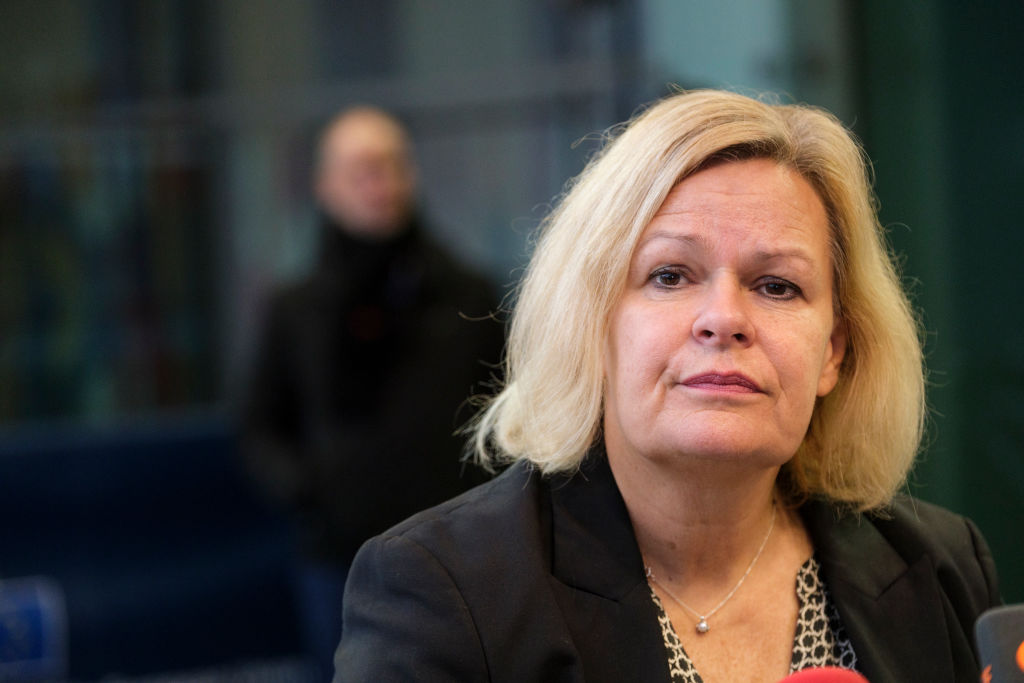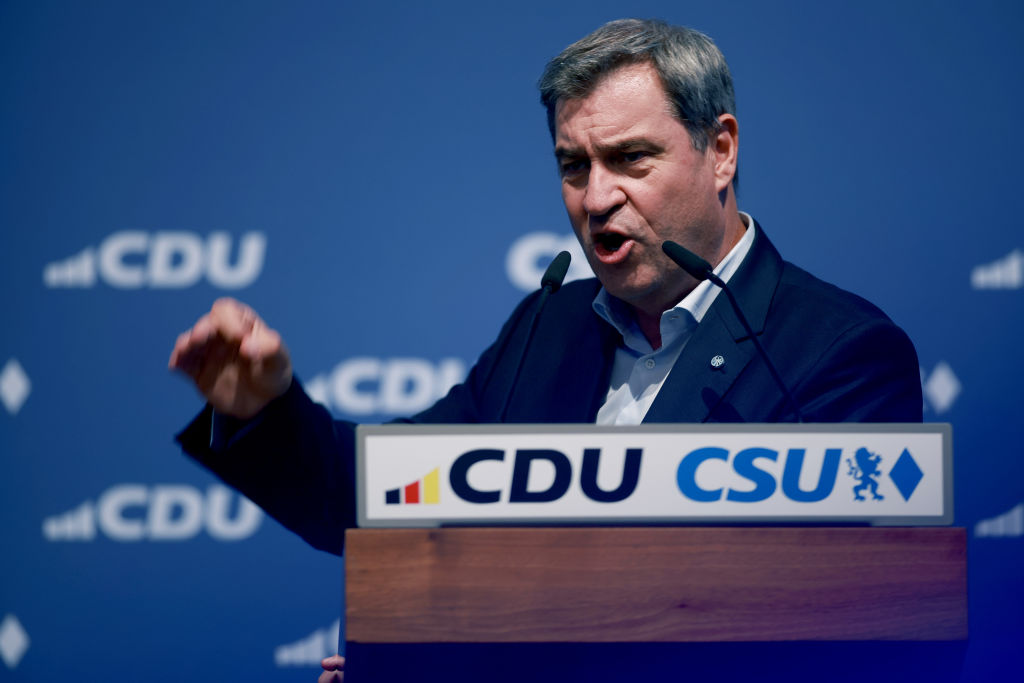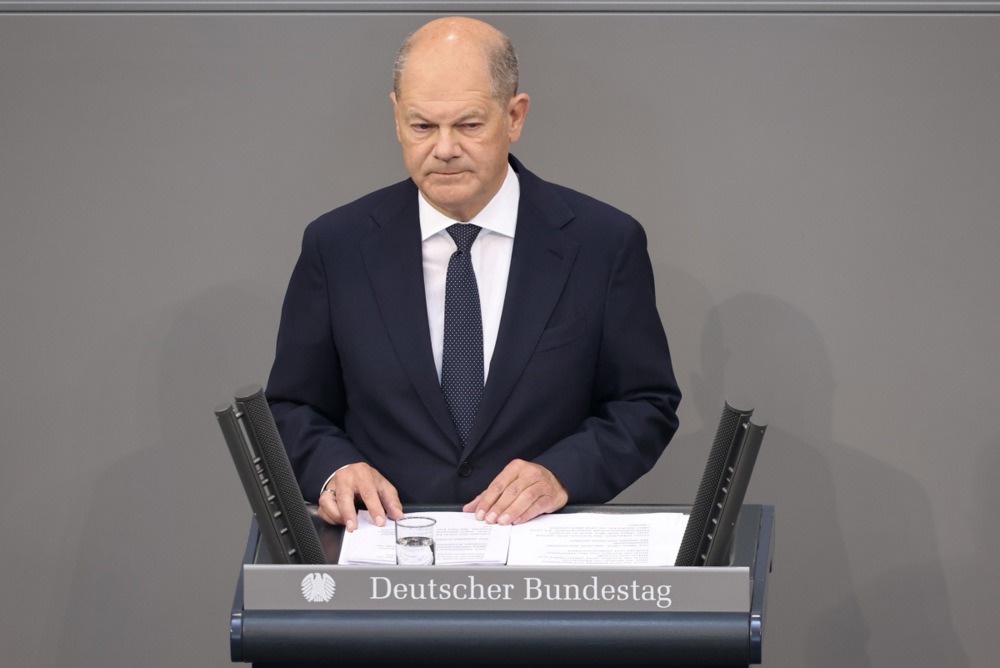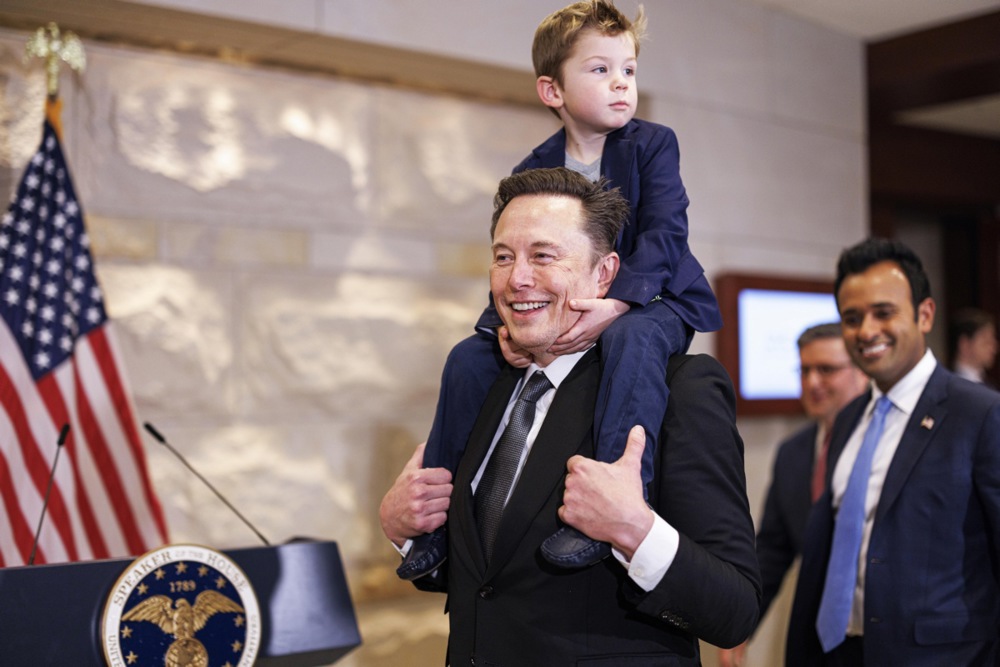Markus Söder, a Bavarian Christian Democrat heavyweight, has blamed an apparent attack in which a man ploughed a car into protesters on the streets of Munich on Germany’s open-border policies.
Söder spoke on February 3 after earlier that day the possible terrorist incident took place.
The alleged culprit reportedly was a 24-year-old rejected Afghan asylum seeker who was known to the police for drug offences and shoplifting, among other things.
Some media reports stated that he had posted Islamist commentaries online.
In the incident, 28 people were said to have been wounded, of whom two were fighting for their lives. One of those was a two-year-old toddler, who had to undergo emergency surgery.
The suspect was driving a Mini Cooper. Footage showed that the vehicle sustained significant damage to the windscreen, with the roof and bonnet severely dented. In the background, a damaged child-stroller could be seen.
“It is simply terrible and hurts so much,” Söder said on X. “We feel for all the victims and pray for the injured and all their families. Thank you to the emergency services for their quick and decisive intervention.
“One thing is clear: we always react prudently – but we are also determined. This is not the first attack of this kind. Sympathy and coming to terms with the past are important.
“But something fundamental has to change in Germany.
Es ist einfach furchtbar und schmerzt so sehr. In #München hat sich ein schwerer Anschlag ereignet. Ein afghanischer Staatsbürger fuhr mit einem Auto in eine Menschenmenge und verletzte viele Menschen teils sehr schwer. Wir fühlen mit allen Opfern und beten für die Verletzten und… pic.twitter.com/G19cnFMwqk
— Markus Söder (@Markus_Soeder) February 13, 2025
“It hurts when you have an event like Aschaffenburg in January and now in Munich. It’s just enough,” Söder said.
In January, a knife attack allegedly by a 28-year-old Afghan on a kindergarten group caused outrage across Germany.
According to Bavaria’s interior minister Joachim Herrmann, the 24-year-old Afghan allegedly driving the Mini had come to Germany as an asylum seeker but his application had “probably” been rejected.
At the same time, he said, it was determined “that he cannot be deported at the moment and that he was therefore allowed to continue to stay in our country”.
News outlet Der Spiegel named the suspected attacker as called “Farhad N”, adding he was born in Kabul in 2001, reaching Germany in 2016.
The Federal Office for Migration and Refugees rejected his asylum application, it said. Later, the Afghan received a so-called toleration, which suspended his deportation.
Der Spiegel further reported that he was said to have made Islamist posts before the crime.
With another attack allegedly by an immigrant, migration has become the number one campaign issue just 10 days before the national elections.
Söder is Minister-President of Bavaria and leader of the Christian Social Union (CSU), a regional counterpart of the Christian Democratic Party, and carries a lot of weight with the Christian Democrats.
Federal Chancellor Olaf Scholz commented on the events in Munich in an interview with news outlet Merur.
“It’s terrible what happened in Munich,” Scholz said.
“If it was an attack, we must take consistent action against possible perpetrators with all the means of justice,” he stressed.
“He must be punished and he must leave the country,” said the SPD politician before an election campaign appearance in Fürth, northern Bavaria.
Even before some of the details about the Afghan suspect were known, the hard-right Alternative for Germany (AfD) party was making some predictions.
“Like the perpetrator in Aschaffenburg, he will also be known to the police in CSU-governed Bavaria and will be required to leave the country – and will be classified as ‘mentally ill’,” the party said.
Co-leader of the AfD, Alice Weidel, said: “Once again, many people were seriously injured, and once again women and children were among the victims. My deepest sympathy goes out to the victims and their families. Is it going to continue like this forever? Migration change now!”
On social media, the party further noted that the media initially wrote about a “car crashing into the crowd”, alleging: “It was not the car that decided to drive into a Verdi demonstration in Munich but an Afghan who allegedly deliberately ran over children, women and men.”
Mediale Gleichschaltung: "Auto rast in Menschenmenge". Es war nicht das Auto, das entschied, in eine Verdi-Demo in München zu fahren, sondern ein Afghane, der mutmaßlich gezielt Kinder, Frauen & Männer überfuhr. Unsere Gedanken sind bei den Verletzten & Angehörigen. pic.twitter.com/ht9vgbAr5K
— AfD (@AfD) February 13, 2025
Martin Sellner, an anti-migration activist, claimed on X that the alleged culprit had deliberately driven the car into a union protest.
“He drove a car into their demo,” he alleged.
Sellner went on to say that 600,000 Afghans lived in Germany, the biggest Afghan exclave outside Afghanistan, claiming some controversial statistical differences between Afghans and Germans regarding homicide rates.
Ver.di, or Vereinte Dienstleistungsgewerkschaft, is one of Germany’s largest trade unions, representing workers in various service sectors.
MEP Fabio De Masi, a member of Ver.di and also of the hard-left party of Sahra Wagenknecht Alliance (BSW), said of the incident: “As a Ver.di member, this terrible attack has a profound impact on me.”
“There are reportedly children among the injured. I am firmly convinced that fighting racism requires tackling the excessive demands of integration. Anything else is grist to the AfD’s mill!”
Two days before the Munich incident, Ver.di called for resistance against the AfD and “right wing forces”, labelling them “enemies of democracy”.
Die ver.di #Muenchen hat daraus gelernt und entsendet am Wochenende noch mehr Mitglieder gegen Rechts auf die Straße,
natürlich mit Fördermitteln finanziertAus dem Kanzleramt kommt der übliche Serienbrief,
mit den besten Wünschen pic.twitter.com/MN2mbM1mbd— Yvonne Prause AfD (@YvonnePrauseAfD) February 13, 2025
On February 14, the Munich Security Conference will take place, a major meeting about international security. Numerous world leaders are expected to attend the event in the German city.





